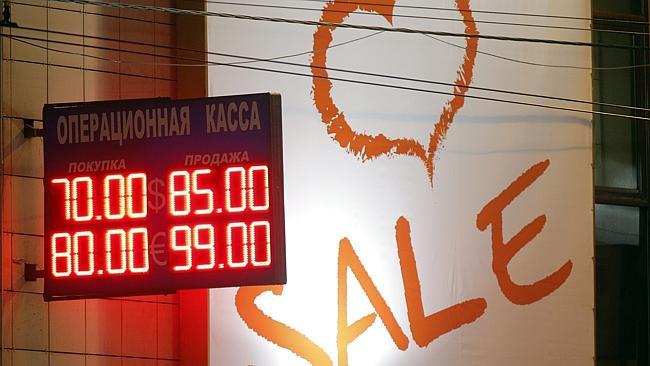US analysts don’t expect Putin to stop interfering in Ukraine
THE US has indicated sanctions could be eased if Russia de-escalates, but the confrontation seems likely to continue for the time being.

WESTERN policymakers are waiting to see whether a weakened Kremlin will call off its intervention in Ukraine to win a reprieve from sanctions that have combined with low oil prices to push the Russian rouble off a cliff.
But there is limited reason for optimism, present and former officials say, as the penalties imposed for invading Ukraine have so far failed to persuade President Vladimir Putin to call off Russia’s intervention in east Ukraine.
Further, a political climate in Washington that has turned against the Russian leader likely means the sanctions will stay for the foreseeable future. Bowing to pressure from the US congress, Barack Obama intends to sign a bill turning the sanctions into federal law. The bill’s impact is largely symbolic, but it adds to the growing perception that Russia is fast becoming off-limits to Western investment.
The US and the EU began levelling sanctions against Russia after the Kremlin moved to annex Crimea in March. Moscow-backed separatists later seized chunks of east Ukraine, drawing yet more sanctions from the West.
Washington and European capitals later accused Moscow of not fulfilling its commitments under a shaky Ukrainian peace deal struck in September. Moscow has denied backing the separatists and ignoring the truce terms, and instead has accused the West of fomenting the crisis in Ukraine to damage Russia’s interests.
“It will be up to President Putin to decide whether or not the economic costs are worth it to him and are worth it to the Russian people,” White House spokesman Josh Earnest said on Tuesday. Echoing a similar comment by Secretary of State John Kerry, he said sanctions could be lifted if Moscow de-escalated the conflict.
Western economic restrictions aren’t the only reason the Russian economy is hurting. The low price of oil, a key Russian export, has created major problems for its commodity-dependent budget. That, combined with what US officials call erratic economic management, paved the way for the currency crisis.
A senior US official has said it has never been Washington’s objective to damage the Russian economy for the sake of it, or to oust Putin. Top Russian leaders accuse Washington of pursuing regime change in Russia.
US officials believe Moscow could be on the verge of insolvency, and the plunge in crude oil prices during the past month could push it into a balance-of-payments crisis. “Their system seems to be freezing up,” a senior official says.
For months now, US officials have been concerned that Putin may not be getting sound economic advice or contrarian opinions, and may be increasingly reliant on the echo chamber of a small circle of advisers unwilling to contradict the President.
The sanctions that have had the biggest impact are those that restrict Western lending to key Russian banks and energy companies — with a cascading effect on the rest of the economy’s access to capital, analysts say.
“It’s an absolute crisis, and a disastrous one,” says Anders Aslund, a senior fellow at the Peterson Institute for International Economics and a former adviser to the Russian government in the 1990s. “What they didn’t realise is how vulnerable they are.”
Some Russia analysts have detected potentially positive signs, seeing a decline in official emphasis on east Ukraine and a reduction in the use of the imperial term Novorossiya to describe the rebel-held areas of the east.
But Michael McFaul, a former US ambassador to Russia, says a Russian retreat appears unlikely.
“It’s hard for me to imagine what concessions Putin will be willing to offer,” he says. He acknowledges, though, that adverse economic conditions may prevent the Russian leader from backing further adventures in Ukraine or other former Soviet lands.
WSJ


